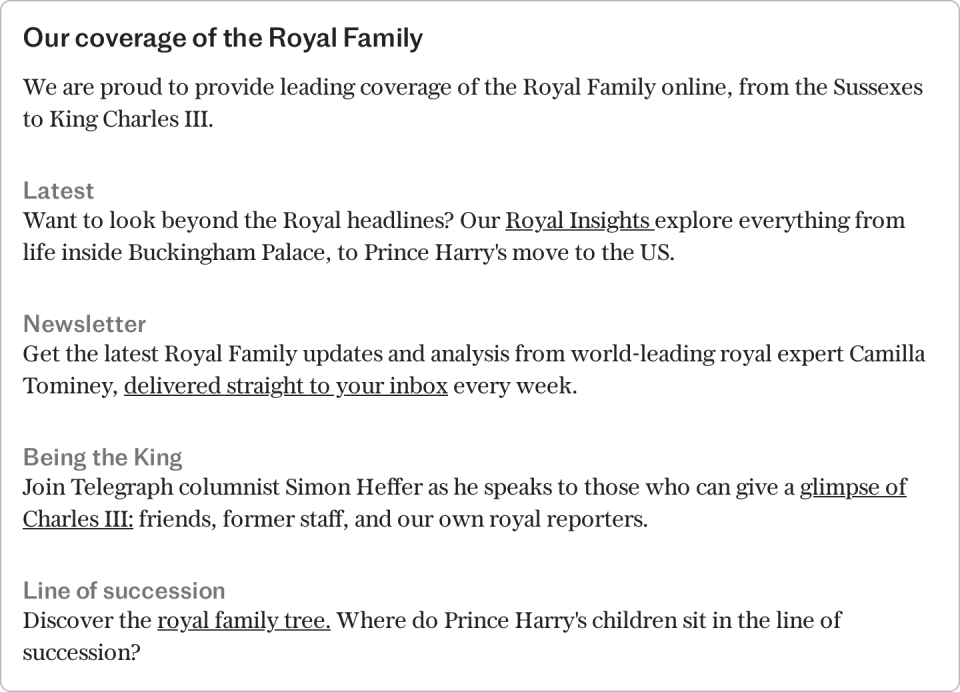Buckingham Palace let down Prince Andrew in handling of sex abuse allegations, close friend claims

Buckingham Palace let down the Duke of York in its handling of the royal’s sex abuse case, one of his close friends claims.
Paul Tweed has highlighted a litany of alleged failings in the PR and legal strategies adopted on the Duke’s behalf by the palace and his own legal team.
In a new book, he argues that the price paid by Prince Andrew “could hardly have been higher”.
He also suggests that it was a mistake not to publicly address the facts in the immediate aftermath of the Duke’s disastrous Newsnight interview, not to engage with his accuser Virginia Giuffre’s lawyers from the outset and to try to avoid the inevitable service of legal papers.
The way in which the out-of-court settlement was handled only served to fuel the impression that the Duke was forced to “buy off” Ms Giuffre, Mr Tweed claims.
The book, called From Holywood to Hollywood, My Life as an International Libel Lawyer to the Rich and Famous, describes how Mr Tweed came into the royal orbit in 2016 when he was asked to advise Sarah, Duchess of York, six years after she fell victim to the News of the World’s ‘fake sheikh’ sting, going on to secure “a number of settlements and apologies for her”.
He has since become a friend of the York family, joining them in the royal box at Ascot in 2016, attending Princess Eugenie’s wedding in 2018 and occasionally advising the Duke in an unofficial capacity in the intervening years.

Mr Tweed has devoted one chapter of his book to the way in which he believes Prince Andrew was tried in the court of public opinion following his November 2019 Newsnight interview, which marked the beginning of the end of his royal career.
The Duke was convinced that it would allow him to demonstrate his innocence and to persuade viewers that he had never abused the teenage Ms Giuffre, as she had claimed.
The decision backfired, with the Duke’s bizarre alibis concerning Pizza Express in Woking and an inability to sweat, landing badly. He also failed to express any regret over his friendship with Jeffrey Epstein, the convicted sex offender, or empathy for his victims.
Mr Tweed acknowledges that only the Duke, Ms Giuffre, Epstein and his friend Ghislaine Maxwell knew what took place on the night in question.
But he writes that the price paid by the Duke in the wake of the allegations “could hardly have been higher”.
Mr Tweed told The Telegraph that he did not intend to criticise the decisions made on behalf of the Duke, acknowledging that he did not represent him and was not party to the discussions at the time.
“Hindsight is a wonderful thing,” he told The Telegraph. “For all I know, Andrew may have been given the best advice and chosen to ignore it.
“My point is that the court of public opinion has far more of an impact than the court of law.”

In the book, Mr Tweed admits that he was astonished that the Newsnight interview was allowed to go ahead, not least given that “everyone close to him”, including his ex-wife, urged him not to do it.
“For Prince Andrew to expose himself to unrestricted cross-examination by a very experienced interviewer, who would have undertaken extensive research and prepared questions well in advance, could not possibly offer any upside in any circumstance to anyone,” he writes.
He admits that the Duke’s “focus, demeanour and presentation” were all wrong – something he puts down to his cocooned and protected upbringing – and claims that as a result, he gave entirely the wrong impression.
His evidence, rather than being heard by a jury, was communicated via television in an interview for which he was “unprepared” and unfamiliar with how best to present his case.
It took Buckingham Palace four days to issue a statement, in which the Duke accepted that his association with Epstein “had become a major disruption to my family’s work” and that he was giving up his public duties.
In January 2022, shortly before the Duke settled his civil case with Ms Giuffre following months of lurid headlines, the palace announced that his military titles and royal patronages had been returned to Elizabeth II.
Mr Tweed suggests that such reactive public statements gave the impression that they had been “dragged out” of a reluctant Duke who was already on the back foot, only serving to compound negative public opinion.
The statements “came across as defensive rather than proactive” and were extremely limited in scope, much to the frustration of at least one of the Duke’s PR advisers at the time, he claims.
A structured and proactive media strategy that addressed all of the facts from the outset, rather than repeated denials, might have clearly explained the Duke’s stance, he claims.
The decision to concentrate on the risk of legal proceedings in the UK, is also questioned, as Mr Tweed argues that it was clear any potential legal battle would take place in the US.
By the time US counsel were eventually hired, Ms Giuffre’s lawyers had been able to “establish themselves in the driving seat of the litigation and the media optics”, leaving the Duke’s new legal team struggling to regain lost ground, he writes.
Buckingham Palace declined to comment.



